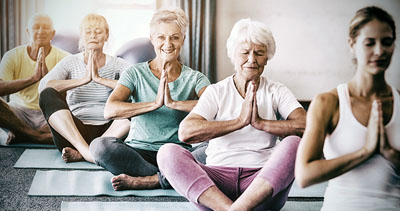Summer Body & Mind

Summer has officially arrived and everyone is breaking a sweat not because of the heat, but because our “beach bods” are not quite where we had hoped. But what is a beach body, anyways? Oiled muscles glistening in the sun? Gracefully diving for a volleyball, hair perfectly in place, without a face full of sand? Sounds dreamy. I like to think a beach body is simply my regular body, just covered from head to toe in sunscreen.
Society places a lot of anxiety around one’s looks. Enhanced photos make us think twice about our own needs and appearance. But strutting our stuff down Wrightsville Beach should not be our objective for the summer. Feeling well, confident, and healthy? That I can work with. I say this because I see a lot of people suffering from disease. There are so many scary epidemics going on in America right now–in our very towns and neighborhoods. Usually, they are related to lifestyle choices. Vital choices that we are able to influence. One reason this has occurred is because society has us focus on our reflection rather than our inner wellness.
This whole-body health led me to discover yoga and meditation. Not the “20 minute planks: core yoga workout,” but yoga for breathing, focus, stress relief, and peace of mind. The goal was to become mentally strong and aware. Practicing this for 90 minutes does not result in a six-pack, but self-love for the entire day.
The benefits of meditation are instantaneous: greater sense of calm, wellness, and energy; less anxiety, stress, worry, etc. Baffled by how truly good I felt after a session, I started digging deeper into the logic behind it. I came across the Alzheimer’s Research and Prevention Foundation (ARPF). Yoga and meditation has been widely accepted and practiced for many years in the East, but I never knew that Western medicine and the science community had finally realized its proven potential.
If you have ever had anyone suffer from Alzheimer’s or dementia, you know it is a heinous disease that affects everyone involved. For decades, pharmaceutical companies have been pushing out medicine to combat the onset of Alzheimer’s–with a 100% failure rate. These prescriptions not only cost a small fortune, but they are ineffective. This is where the Alzheimer’s Research and Prevention Foundation has had such a breakthrough. Founded by Dr. Dharma Singh Khalsa, ARPF is conquering memory loss–not through prescriptions, but through lifestyle changes and prevention. One of their founding principles or “4 Pillars of Alzheimer’s Prevention” is reducing stress through Spiritual Fitness™ (meditation and yoga). Spiritual Fitness, or psycho-spiritual well-being, goes hand-in-hand with stress management.
Over time, stress literally destroys the brain. Dr. Khalsa explained, “Doctors and health officials are quickly realizing that daily stress, especially when it is chronic and not alleviated, takes a huge toll on our collective health. And, if you do not think stress levels in the U.S. are higher than ever, take a look at the number of tranquilizers, antidepressants, high blood pressure medicines, and antacids being taken today. All of these medications are used for illnesses made worse by stress–and they are the best-selling drugs in Western countries.” Case and point, meditation and yoga reduce stress by lowering cortisol and improving many other aspects of mental functions. Of course, stress management has other positive benefits as well, such as improved performance, heart function, reduced anxiety, less chronic pain, and even increased longevity.
Not only does yoga and meditation increase my self-love and confidence, it strengthens my brain efficiency. My chances for developing dementia decrease every day. For those who are already experiencing memory loss, it is not too late to reverse the damage. This past year UCLA came out with a study that revealed a significant improvement in people who practiced a Kirtan Kriya yoga for only 12 minutes a day. The yoga group, compared to the control group, tested better in visual-spatial memory (where you put your car keys), which is important for balance, depth perception, and overall navigation. This is one of the many examples and studies that support prevention through spiritual fitness and wellbeing.
Certainly, people do not want to think about these “things” yet. Alzheimer’s is scary. The truth is, the onset has been found to start in adults in their 30s. However, it can be largely prevented. Eating a balanced, low-sugar diet, and exercising regularly can reduce developing dementia by 50%. Because yoga is such a trendy pastime and exercise, we may see a healthier society in the future. This just affirms that taking care of ourselves does not have to be a laborious task. Wellness can be easy, fun, and affordable.
So, this month as I storm the beach I will not be worried if I match up with the billboards advertising what a healthy, happy person looks like. Instead, I will be relaxing under my umbrella, breathing deeply and meditating wellness throughout. I will be confident in the fact that my mind and body is in tiptop shape–and that will make for an enjoyable summer.
Every 68 seconds someone is diagnosed with Alzheimer’s. Right now, that is around 5.5 million Americans. Organizations such as ARPF depend on donations to continue their groundbreaking research–research that is proven to be effective in fighting dementia. ARPF holds free memory screenings, provides educational materials and lectures, publishes scholarly articles, and funds research studies. For more information about Alzheimer’s and proven ways of prevention, visit alzheimersprevention.org.

